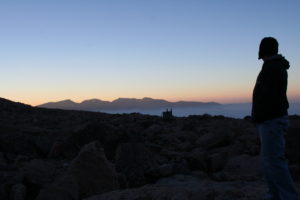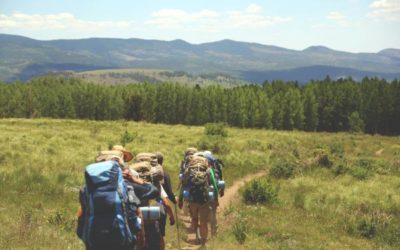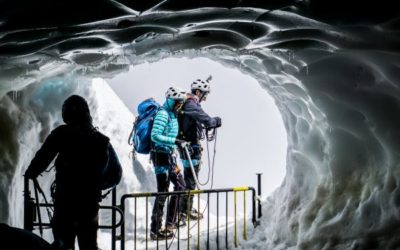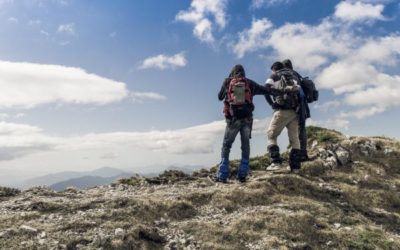In a climate-controlled existence, it can be easy to disconnect from reality and we begin to doubt our ability to know what is true. Conflicting news headlines and clamoring voices make truth seem like an ideal just out of our grasp. Deep in our hearts, we long to find solid truth upon which to build our lives. Like Pontius Pilate’s famous question, philosophers have been struggling for centuries to answer: “What is truth?” (John 18:38)
Navigating unmarked wilderness is a search for truth. Trails appear that aren’t on maps, weather conditions alter terrain, and topography can be deceptive. I’ve learned the hard way that following trails without paying close attention to a map and compass can be misleading and even dangerous. Let’s look at three major obstacles to staying on the right path in the wilderness. This gives us insight into how people search for truth and some tools for overcoming these obstacles.
OBSTACLE #1: DISCONNECT FROM REALITY AND TRUTH
Wilderness navigation is often a return to nature’s reality for those of us who spend too much time in more insulated environments. Wilderness travel necessitates an orientation to our surroundings, an observation of weather patterns, and face-to-face conversations with our companions. In the wilderness, I’m forced to observe and draw conclusions based on the facts inherent in my surroundings.
Facebook will not tell me which trail is correct. Twitter will not tell me if a thunderstorm is blowing over the mountains. Texting and e-mail often lead to miscommunication, but a heart-to-heart conversation with my tent mate deepens our relationship and understanding between us. This is part of the reason that deep relationships can be cultivated so effectively on extended wilderness trips.
RELATED: How You Can Experience True Family in Temporary Community
Next you can train your mind to sort out truth by immersing yourself in outdoor environments and reconnecting to your most basic needs of food, water, and shelter from the elements. I have found that focusing on these essentials helps me remember what is real in a world full of conflicting opinions. Similarly, God’s creation shows off His fingerprints and can remind us of His presence. Taking the time to observe His handiwork is a key to training our minds to know Him (Psalm 19:1, 46:10).
REFLECTION QUESTIONS:
- What are some of the insulated environments that you operate in that might be distracting you from finding truth?
- What is an area of your life where you are longing to know, “what is truth?
Stay tuned for this 3 part series. Guest blogger, Emily Huguenin, identifies 2 more obstacles and takes a closer look at how wilderness navigation informs a quest for truth.
Part 2: What’s the Best Map for Navigation? The Bible
Part 3: Don’t Doubt Your Ability to Interpret Truth
Emily Huguenin is a lifelong adventurer who has been guiding outdoor experiences for youth since 2005. She started her career in outdoor leadership by earning a B.A. in Bible/Theology and Camping Ministry from Appalachian Bible College, and an M.S. in Environmental Education from Montreat College. Emily spent the past ten years directing outdoor education programs, high adventure camps, and wilderness-focused residential summer camps in mountainous places including West Virginia and Wyoming.




